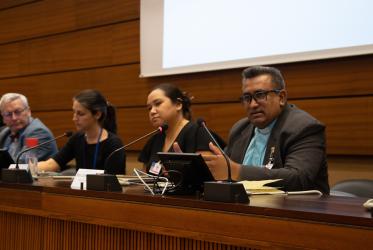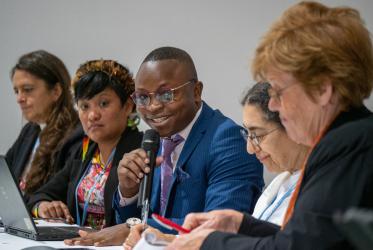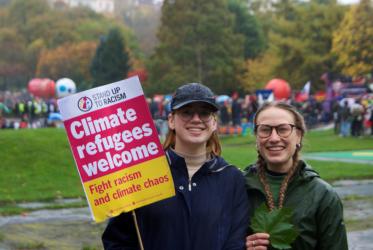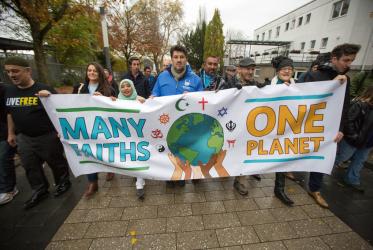Displaying 1 - 15 of 15
COP side event explores how to deliver on the promise of adaptation
16 November 2022
COP 23 “debriefing” brings faith and ethical perspectives
23 January 2018
Faith communities explore concrete climate action at COP22
10 November 2016
WCC delegation in Doha advocates for climate justice
05 December 2012
Durban outcome is not enough, says WCC
13 December 2011
Religious voices advocate for climate justice at Durban
28 November 2011
Raising ethical dimensions in debate on climate justice
22 September 2011













